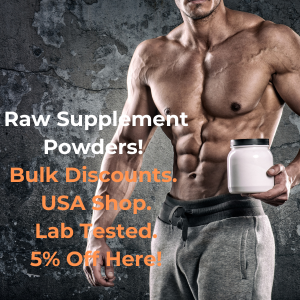In the pursuit of peak performance and the perfect physique, the world of fitness often flirts with extremes. And in the midst of this high-octane quest, pre-workout supplements stand as a tempting elixir promising to unlock hidden energy and motivation.
But, as with any powerful potion, there’s a lingering question that gives fitness enthusiasts pause: “Are Pre-Workouts Unhealthy?” In this blog post, we’re about to embark on an investigative journey into the heart of this controversial fitness elixir.
We’ll dissect the science, weigh the pros and cons, and explore the myths and truths surrounding the potential health impact of pre-workout supplements.
- Vitamin D Shocking Benefits For Mental Health
- Will Getting Enough Vitamin D Help With Sleeping?
- Does Vitamin D Supplements Boost Testosterone
- Does Vitamin D Supplement Support Hair Growth
Pre-workout supplements have gained popularity in the fitness community for their potential benefits in enhancing exercise performance, energy levels, and mental focus. Here are some of the key advantages:
Increased Energy: Pre-workout supplements often contain caffeine, which acts as a stimulant to boost alertness and combat fatigue. This surge of energy can help you tackle your workout with more vigor, especially during early morning or long, grueling training sessions.
Enhanced Workout Performance: Ingredients like beta-alanine can reduce muscle fatigue, allowing you to push through more extended and more demanding workouts. This can result in greater calorie expenditure and muscle engagement, contributing to overall progress.
Better Focus: Many pre-workout supplements contain nootropics or other cognitive-enhancing ingredients that can sharpen your mental focus and concentration. A heightened sense of awareness can help you establish a stronger mind-muscle connection, making each repetition more effective.
Improved Blood Flow: Some pre-workout ingredients, like citrulline or arginine, boost nitric oxide production, leading to improved blood flow and nutrient delivery to working muscles. This enhanced circulation can help you achieve better “pumps” during strength training and promote muscle growth.
Appetite Control: Pre-workout supplements often contain appetite-suppressing ingredients like caffeine. This can help you control your hunger and prevent post-workout binge-eating, making it easier to stick to a calorie deficit if you’re trying to lose weight. Shop raw supplements, bulk discount, lab tested 5% off here!
Motivation and Consistency: The act of consuming a pre-workout supplement can serve as a motivational ritual. Knowing you’ve consumed a supplement designed to enhance your workout can help you mentally prepare and maintain consistency in your training routine.
Resistance to Muscle Fatigue: Ingredients such as beta-alanine can help delay muscle fatigue. With fatigue setting in later during your workouts, you can perform more repetitions and engage muscles to a greater extent, potentially stimulating more growth.
It’s important to note that while pre-workout supplements offer these advantages, they should be used in conjunction with a balanced diet and a consistent exercise routine. They are not a substitute for proper nutrition and a well-rounded workout regimen.
Additionally, individual responses to pre-workout supplements vary, so it’s advisable to start with lower doses to assess your tolerance and avoid potential side effects, like jitteriness or sleep disturbances. Consulting with a healthcare professional or nutritionist can help you make informed decisions about incorporating pre-workout supplements into your fitness routine.
What Are The Side Effects Of Pre Workout Supplements?
Pre-workout supplements can offer several benefits, but they also have the potential for side effects, especially when used inappropriately or excessively. Here are some common side effects associated with pre-workout supplements:
Jitters and Nervousness: Many pre-workout supplements contain caffeine and other stimulants, which can lead to jitteriness, nervousness, and restlessness. This can be particularly problematic for individuals who are sensitive to caffeine or when high doses are consumed.
Insomnia: The stimulating effects of pre-workout supplements, especially those taken too close to bedtime, can interfere with sleep. Insomnia or disrupted sleep patterns are common side effects, as these supplements can affect the ability to fall and stay asleep.
Digestive Distress: Some pre-workout ingredients, such as beta-alanine or creatine, can cause gastrointestinal discomfort, including bloating, cramps, and diarrhea. This discomfort can be especially noticeable when taken on an empty stomach.
Increased Heart Rate: Stimulants like caffeine can elevate heart rate and blood pressure, potentially leading to palpitations or an irregular heartbeat. Individuals with underlying heart conditions or high blood pressure should be cautious when using pre-workout supplements.
Dehydration: Certain pre-workout ingredients, like diuretics, can increase water loss through urination. This can lead to dehydration if you don’t consume enough fluids during your workout.
High Blood Pressure: Pre-workout supplements containing stimulants can raise blood pressure, which can be concerning for individuals with hypertension or a predisposition to heart problems.
Tolerance and Dependency: Regular use of pre-workout supplements may lead to tolerance, where the same dosage becomes less effective over time. This can potentially lead to dependency, where you rely on the supplement for energy and motivation to work out.
Nausea and Vomiting: Some individuals may experience nausea and even vomiting when taking pre-workout supplements, particularly if they’re sensitive to the ingredients or if they take the supplements too quickly.
Anxiety and Mood Changes: The stimulating effects of pre-workout supplements can sometimes lead to feelings of anxiety or irritability, affecting mood and overall well-being.
Risk of Overdose: Taking excessive amounts of pre-workout supplements can lead to caffeine overdose or other adverse reactions, including heart arrhythmias, seizures, or even hallucinations.
It’s crucial to use pre-workout supplements responsibly, following recommended dosages and consulting with a healthcare professional if you have underlying health conditions or are unsure about your tolerance to specific ingredients. Additionally, a balanced diet and proper hydration should remain the foundation of your fitness regimen. If you experience severe side effects or discomfort when using pre-workout supplements, it’s advisable to discontinue their use and seek medical guidance.


